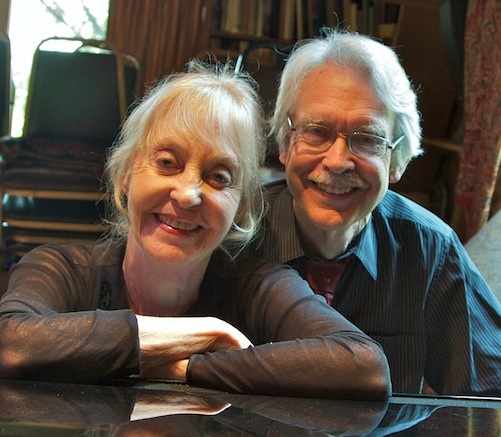Founder's Recital ‐ Beginnings Revisited
Saturday, August 22, 8:00 P.M.
Sunday, August 23, 4:00 P.M.
Works of Haydn and Mozart
 There are not many instances in the history of concert music of the best composers becoming close friends. Haydn and Mozart achieved what is still the most significant and nourishing bond between colleagues that we can find in the annals of symphonic music. They had some advantages: they were of different generations and Haydn, the older of the pair, managed to treat the younger with generosity, never pulling rank or promoting his seniority. They had very different gifts: Mozart was an actor, a free spender, a swaggerer; Haydn was a croupier, a dealer of the cards, a fortune teller. They learned and borrowed from each other, both aware of the other’s fields of domination, Mozart in opera and concerto, Haydn in string quartet, trio and symphony.
There are not many instances in the history of concert music of the best composers becoming close friends. Haydn and Mozart achieved what is still the most significant and nourishing bond between colleagues that we can find in the annals of symphonic music. They had some advantages: they were of different generations and Haydn, the older of the pair, managed to treat the younger with generosity, never pulling rank or promoting his seniority. They had very different gifts: Mozart was an actor, a free spender, a swaggerer; Haydn was a croupier, a dealer of the cards, a fortune teller. They learned and borrowed from each other, both aware of the other’s fields of domination, Mozart in opera and concerto, Haydn in string quartet, trio and symphony.
At the level at which both men composed it is futile to label one of them as better at what they did. But their modern reputations are another story. Mozart is here, Haydn is not.
Haydn officially has been assigned to the historical performance movement, where he has not received the celebrated status he deserves. Some string quartets, aware, when they play his pieces of a quality and variety hardly found in any later music, keep him as an opener for their concerts.
But the real issue is this: Mozart brings a sense of theatre to virtually every piece he writes. The pose, the gesture, the entrance and exit, the initial announcing speech, these rhyme with our times in a very present way. Haydn’s philosophic, often droll wisdom, his brilliant commentary on music’s syntax, on the markers of musical form, require acute, engrossed listeners for whom THESE are drama. This is why the lovers of his music cherish him, and miss him so much, and why the Token Creek Festival returns to him often—on this occasion pairing him with his old quartet playing partner whose appreciation for his every sly twist in the game was uniquely sharp.
Program
Sonata No. 11 in G Major Wolfgang Amadeus Mozart Trio in A (1785) Franz Joseph Haydn Sonata No. 14 in E minor Wolfgang Amadeus Mozart Trio in E flat (1795) Franz Joseph Haydn Rose Mary Harbison, violin • John Harbison, keyboardKarl Lavine, cello